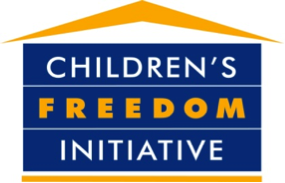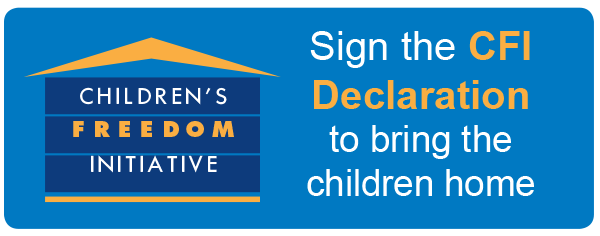Children's Freedom Initiative (CFI)
The Children’s Freedom Initiative (CFI) is a collaborative effort to ensure that children who live in facilities are given the chance to live with permanent, loving families. We are a coalition of advocates dedicated to creating a Georgia in which no child resides in a facility.
The CFI is supported by the Georgia Developmental Disabilities Network, which receives funding from the Administration on Developmental Disabilities, and includes the Georgia Council on Developmental Disabilities (GCDD), the Institute on Human Development and Disability at the University of Georgia (IHDD), the Georgia Advocacy Office (GAO) and the Center for Leadership in Disability at Georgia State University (CLD).
 The CFI continues to educate families about resources available for children so that they can remain at home or in the community, even when their home of origin is no longer an option. The CFI also continues to advocate for youth to transition from facilities into homes in the community.
The CFI continues to educate families about resources available for children so that they can remain at home or in the community, even when their home of origin is no longer an option. The CFI also continues to advocate for youth to transition from facilities into homes in the community.
Background: In the spring of 2005, the Georgia General Assembly passed House Resolution 633 (HR633), a resolution drafted by CFI. The resolution urged the Department of Behavioral Health and Developmental Disabilities (DBHDD), the Department of Human Services (DHS), the Department of Community Health (DCH), the Department of Education (DOE), the Department of Juvenile Justice (DJJ), and the Department of Labor (DOL) to develop a plan to identify, assess, and plan appropriate community supports for individuals under the age of 22 who live in nursing facilities, intermediate care facilities (ICF/MR) and private and public hospitals.
In 2009, the CFI began working with Georgia families whose children are in facilities outside the state. The CFI hosted a study tour for young adults living in facilities and for families of children living in out of state facilities in May 2010. The study tour participants visited three homes demonstrating the possibilities for young adults and children living in communities with appropriate supports. The event is featured on NPR in a story by Joe Shapiro, airing in November 2010. The CFI plans to identify other children living in pediatric nursing facilities across the nation and to reach out to Georgia families in hopes of bringing these children home.
Joe Serra, an advocate with the Georgia Advocacy Office, is the lead contact person for the Children’s Freedom Initiative. You may reach him at or call 404-885-1234. For more information on CFI, visit their website at: http://www.georgiacfi.org/Home.aspx

